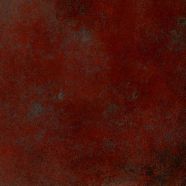1pm
The main entrance to the Kilis hospital is closed.
Construction is booming in the backdrop.
The building is too small.
Too many Syrians they say,
not enough rooms.
For many, this is the first stop from the battlefield across the border.
Bombs and bullets paint the city of Aleppo red
about an hour south of here.
An ambulance ride is a bumpy lifeline
held in a loose grip.
Some make it,
others
don’t.
I approach the emergency room gently from the side.
Don’t want to draw too much attention.
“Just act like you belong,”
my driver tells me.
Blood stains line the ceramic entrance tiles.
I tiptoe around
the splatter.
Many here have learned to dance with death.
I walk in.
***
I slide past security and turn
into the first room on the right.
A ticking clock sets the scene.
An old man hunches over a splintered rail.
He’s barely holding himself up.
His back is a cracked paintbrush stroke,
a slow sweeping arthritic arc.
An unforgettable stench drifts through the room.
It curls into your mouth and rests inside you.
You can feel the aroma permeate the barriers of your body.
The smell is unmistakably human.
The smell unmistakably was human.
In the corner, a thick brown blanket cloaks a body.
It’s the old man’s son, Malik. He’s 25 years old.
His young face flickers under the florescent bulbs.
Blood crusts around his lips, eyes, and nose.
Malik was struck by a bomb near Aleppo on his way to work yesterday.
He can still feel the pain gripping his spine.
He lies motionless before us.
He is motionless, but alive.
His father asks to borrow a phone to call relatives
back home.
The family in Syria doesn’t know if Malik is alive or dead.
Our cell phone signals are a tangled
thicket.
We try 4 different lines before
finally he pulls through.
“He’s ok”
“He’s ok”
A rusted tear ricochets from the father’s cheek.
“He’s ok!”
The voice on the other end tells him a
neighbor has died, old age.
A reminder that death can be natural.
In war everything feels mechanical,
calculated,
bombs aren’t natural.
***
I walk back into the lobby.
A Syrian hospital translator greets me
with a soft paper cup of piping hot coffee.
Mohammad has a steel fence of hair
and a pair of piercing eyes.
He spotted me from a distance and
twisted his lips into a barbed wire curl of a smirk.
He’s a mechanic by trade
but his tongue can slice syllables in four languages
so he is here by choice,
to help.
“Death is normal now,” he says.
“We have become cold to life.
Some come with no legs,
others with faces blown off.
But the hardest is when the kids come in,
those nights,
it’s difficult to sleep.”
“This place moves like clockwork.
The bodies start coming after 1pm,” he says.
“Drink your coffee.
Just wait and see.”
***
Three Free Syrian Army soldiers walk in.
They’re waiting for help
in the entrance hall.
Amar is strapped with a neck brace,
he can barely move his head.
His brother Kamal sits by his side
along with a fellow fighter.
Amar was hit by a bomb outside Aleppo.
I ask if he wants to do an interview.
Doubt and ire shrapnel his face.
But there is a conviction in his stare.
He mumbles a whisper through clenched teeth.
“Yea,
go ahead
I want my voice to be heard.”
Amar tells me it’s very clear,
“In case you’re not convinced,” he says.
“We’re out here defending the defenseless.”
He’s a rebel fighter,
carries an AK 47 onto the battlefield of his home
against tanks and planes, bombs and artillery shells.
“They use everything against us,” he says.
“There is not a house left untouched.”
He’s a 26-year-old farmer,
a typical Syrian man who has taken up arms.
Who else will?
He’s familiar with broken promises.
“No one but god can save us now,” he says.
“They get on the news and say two words,
then forget as the Syrian people are destroyed.
Why are we left dying?
Why must the children die?”
he says.
“Even if you don’t care, we will keep fighting.”
There is no ambiguity.
He’s talking directly to me.
I want to tell him
I do care,
but my mouth feels like a smoking barrel.
I know my words are hollow tipped.
Too many men that look like me have fired that false promise before.
Trust is earned
and I don’t have time.
War is mechanical,
calculated,
it moves like clockwork.
I wish him strength
and I leave the hospital.
***
Three Syrian men with stab wounds enter.
Fresh blood
lines the ceramic entrance tiles.
I dance again.
Death is natural,
war isn’t.
It’s almost 1pm now.
*A special thanks to Mike Mallah and Farris Barakat for support with logistics, travel, and translation along the Syrian border for this story.








Dear Will, You were very brave to go to Syria……and your words make your experience very accessible to your reader. Total hugs!